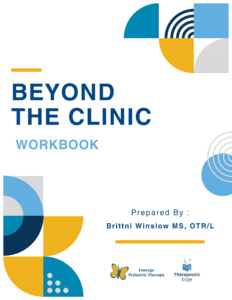
Welcome back to our mini-series about developing a psychologically safe partnership for reflective practice. If you missed our previous posts follow this link for tips on finding the right feedback partner and this link for tips on developing and maintaining psychological safety.
For the last post in this series, let’s debunk 3 common misconceptions about reflective practice (either with or without a partner)!
Instead of hearing just from us at The Therapeutic Edge for this post, we called in some reinforcements! The information presented below includes direct quotes from some therapists who have participated in reflective practice with Andrew Klein – the course instructor for Reflective Practice in Peds.
1. Partnered Reflective Practice will only focus on the negatives:
2. Partnered Reflective Practice is “instructive” with someone else directing and telling me what to do differently:
3. Reflective Practice will take up too much time:
So let’s wrap up this 3-part series! Reflective practice empowers pediatric therapists to thrive in their practice and enhance the quality of care for their clients.
When establishing this practice, you have to consider how to choose an appropriate partner and then build and maintain psychological safety. Picking a partner involves trust, empathy, constructive communication, shared goals, and diverse perspectives.
A supportive environment conducive to professional growth and development requires psychological safety to be built and maintained through the expression of clear expectations, openness to vulnerability, active listening, and normalizing mistakes and failures.


